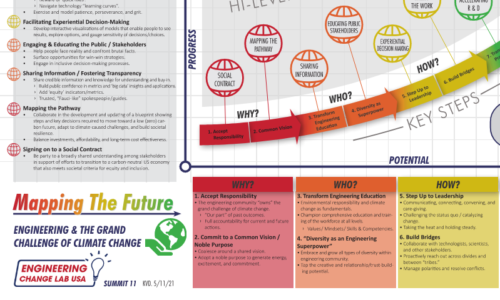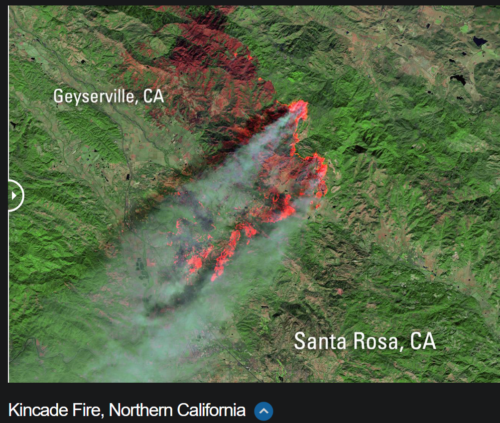Mike McMeekin & Kyle Davy
Engineering Change Lab – USA (ECL-USA) Summit 11 featured a deep dive into how engineering and the engineering community can contribute to meeting the challenge of climate change and how engineering might be transformed by the way it responds to the emerging risks of climate change. To observe the journey the engineering community could follow to make this contribution, scan the “Map of The Future for Engineering and The Grand Challenge of Climate Change” that emerged from Summit 11. The map identifies ten “Key Steps” the engineering community can take to help society achieve carbon neutrality and reduce the threat of climate change.



